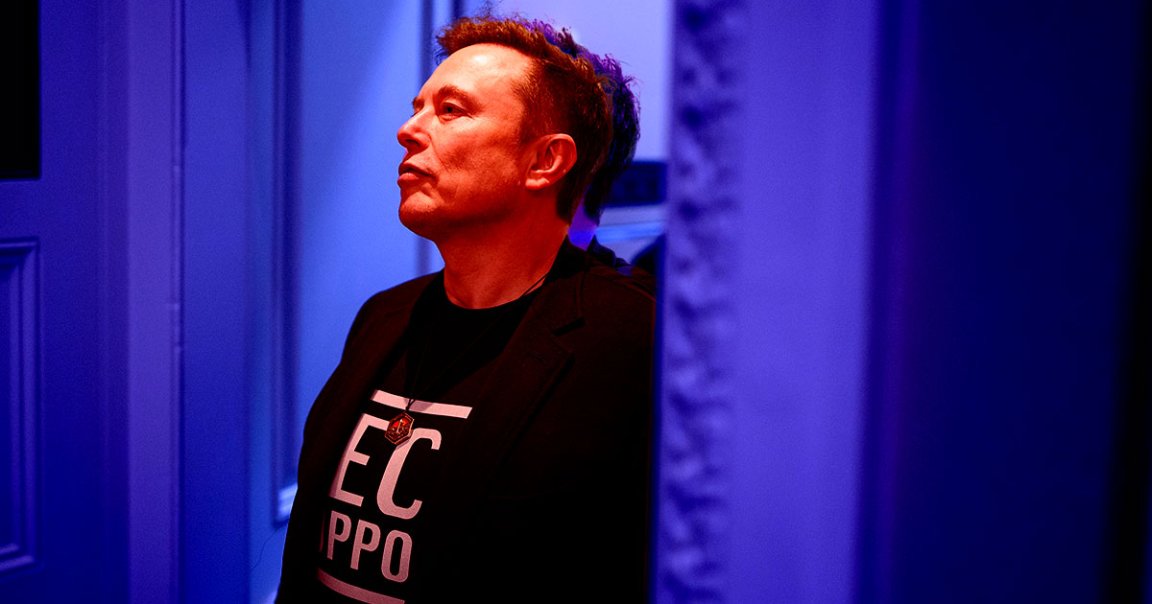
Little love has been lost between billionaire Elon Musk and OpenAI.
Musk co-founded the company in 2015 alongside current CEO Sam Altman, only to rage quit roughly three years later, citing disagreements with the group’s direction.
Since then, in a flurry of personal attacks and disparaging comments, the mercurial Musk has taken it out on the firm, accusing it of failing to uphold its open-source roots. Over the last couple of years, Musk has filed a series of lawsuits against OpenAI, accusing it of being a “closed-source de facto subsidiary” of investor Microsoft and failing to live up to its promise of developing a “safe” AI that “benefits all of humanity.”
This week, OpenAI countersued Musk, accusing him of a pattern of harassment, including “press attacks, malicious campaigns… a pretextual demand for corporate records, harassing legal claims, and a sham bid for OpenAI’s assets.”
OpenAI accused Musk of trying to become an “AGI dictator,” including a scheme to buy OpenAI’s nonprofit arm, a move the company claims was meant to scare off investors.
Strikingly, OpenAI has the receipts. The wealth of incriminating documents included in the countersuit form what Electrek is calling Musk’s “web of lies” surrounding his attempts to assume control over OpenAI is coming to light — and raises the question of how much damage Musk’s credibility can stand as his fibs and dubious timelines start to sound more like PT Barnum than Steve Jobs.
Last year, OpenAI had already revealed that Musk had attempted to merge OpenAI with his EV maker Tesla, a plan that didn’t sit well with the former’s leadership.
Perhaps most hypocritically, while Musk has repeatedly accused OpenAI of failing to live up to its promises of being open, he was the one suggesting OpenAI should move to a for-profit structure.
According to a 2017 email revealed by OpenAI, Musk attempted to assume control over OpenAI by proposing to give himself preferred shares and a supermajority.
In 2018, OpenAI eventually wound up accepting major investment from tech giant Microsoft to kick off its for-profit arm. Musk left soon after.
Since then, Musk has launched his own competing AI company in July 2023, called xAI, in an apparent bid to rival OpenAI. He has also attempted to shift priorities at his carmaker toward AI development, ultimately threatening investors in January 2024 that he would develop AI products and robots elsewhere unless he was given a “25 percent voting control.”
Unfortunately for him, his ill-conceived and ill-executed $44 billion acquisition of Twitter in 2022 left a giant hole in his pocket. Compounding these issues, a Delaware judge voided Musk’s gargantuan $55 billion Tesla compensation package, calling it an “unfathomable sum” and arguing it was unfair to shareholders. In August, shareholders overwhelmingly approved the package — a widely expected development, given their longstanding loyalty to the CEO — only for the same Delaware judge to reject it once again.
Last month, Musk announced that he had sold X-formerly-Twitter to his AI startup xAI, which is valued at $80 billion, in a baffling, 11th-hour attempt to rescue his ailing social media company that raised plenty of eyebrows.
In other words, Musk was financially on the back foot, which could explain his flailing against OpenAI.
Meanwhile, his smear campaign against OpenAI continues, culminating in a gigantic $97.4 billion bid to buy the nonprofit that controls OpenAI in February. The move was widely seen as a way to slow down OpenAI’s transition to a for-profit entity.
In its latest countersuit, OpenAI accused Musk of making up the almost $100 billion purchase price, pointing out the lack of “evidence of financing.”
In short, Musk’s actions suggest he’s been trying to strongarm himself into a position of power and influence in the AI industry at all costs — actions that have hurt OpenAI, the company claims.
The protracted legal battle raises a number of questions. Did Musk feel left out by OpenAI’s meteoric rise to the world’s leading AI firm? Did he launch xAI because he failed to take over the ChatGPT maker?
Given the ample evidence, there are plenty of good reasons to believe that Musk’s attempts to paint himself as the victim and OpenAI as the villain are riddled with holes and ulterior motives.
How all of this will play out remains to be seen, especially with Musk’s lawsuit against OpenAI now scheduled for a jury trial next spring — but one thing’s for sure: a factual assertion by Musk at this point is worth the tweet it’s written on.
More on OpenAI and Musk: Elon Musk’s AI Company Tried to Recruit an OpenAI Engineer and His Reply Was Brutal